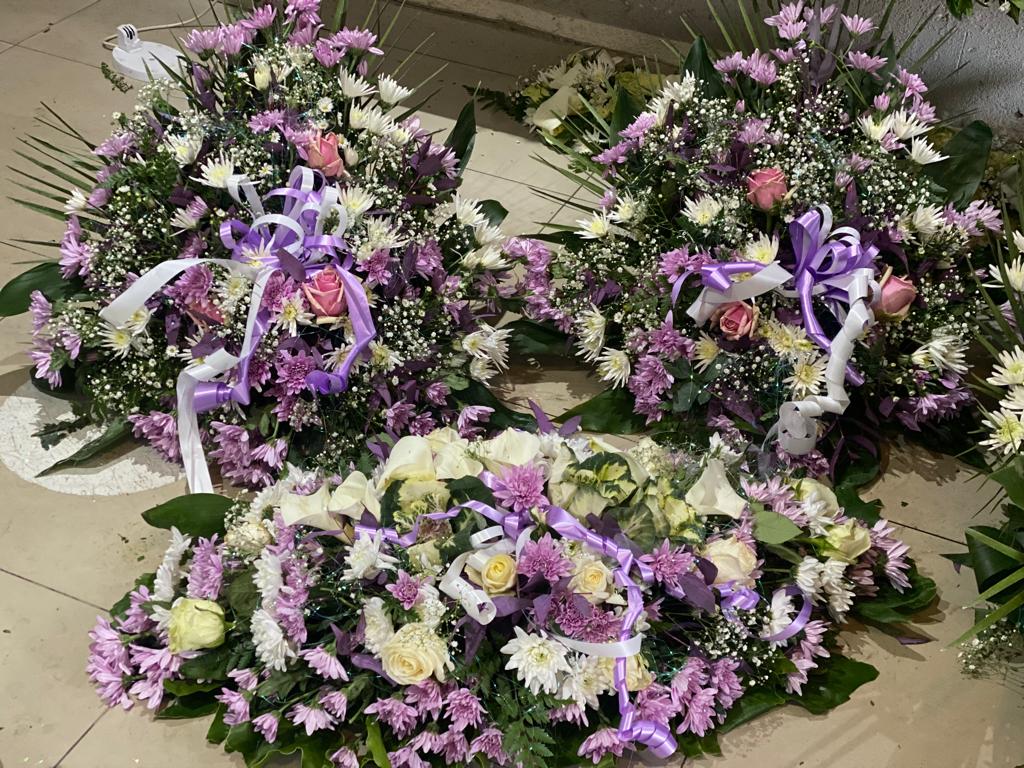
17 Aug Funeral Planning Checklist by Khaabo Tombstones
Are you planning a funeral for a loved one? You can follow this simple guide to make sure that your loved ones are laid to rest with respect and dignity.
Report the death to the police especially if the death of a loved one happened at home.
Inform close relatives and friends so that they can give you emotional support. They will also be able to help you with some aspects of arranging the funeral.
Notify the deceased’s employer and yours as soon as possible so that you can take time away from work to make sure that all arrangements can be made.
Inform your pastor and the church as they will be able to provide emotional and spiritual support for you and your family during the time of mourning. They will also provide support and help with the funeral service. Think about the date, time and venue for the funeral service as well as the messages of the sermon.
Contact a respectable funeral parlour to start the process of arranging a funeral for your loved one’s burial. They are also able to issue the death certificate or direct you to home affairs, because that will be needed by life insurance providers.
Planning the funeral
Remember to discuss these items with the family and the funeral parlour:
- Deceased’s funeral wishes – if the deceased had specific funeral wishes, remember to consider these and inform the funeral parlour.
- Date and time of the burial – this must be decided by the family and inform the parlour.
- Clothing and accessories – for a traditional burial, you may want your loved one dressed in a certain way. Accessories can be association membership pins and the deceased’s watch, earrings or necklaces.
- Burial space at the ceremony – the funeral parlour can also help you arrange the burial site.
- Casket or coffin – remember to choose an appropriate coffin for your religious or cultural rituals.
- Transport for family and relatives to the gravesite – think about how many people will need transport and then you will be able to decide on how many vehicles or consider hiring a bus.
- Graveside needs – if there are special ceremonies during the funeral service for example military orders.
- Funeral programme and memorial cards – decide who will speak at the funeral service (friend, church members, family, colleagues, etc.)
- Flower arrangements – order flowers to be laid at the resting place.
- Nominate pall bearers to carry the coffin. These can be close friends and relatives and usually 6 men are needed.
- Transport for funeral guests to be transferred to the burial site.
- Think about publishing an obituary or announcements about the funeral in the local newspaper or social media.
- Consider having a night vigil, memorial service or special wake so that friends can pay their tributes to the deceased.
- Erecting a tombstone can be done immediately after the burial or later, that will be up to the family.
- Organise a tent and catering to accommodate funeral goers.
Financial Matters
Contact your funeral insurance provider to inform them about the death of your loved one and make a claim from your funeral policy. Remember, the money that you receive from your insurance provider will help you cover costs for the funeral. Claim payments are usually only when all supporting documents are received so make sure that you have them. Insurance providers usually have a range of benefits so make use of the benefits available to you.
Take care of legal matters such as closing the deceased’s bank and notify creditors such as cell phone service providers, retailers where the deceased had accounts can be done after the funeral. You must also arrange for a will reading if the deceased has a last will and testament.



Sorry, the comment form is closed at this time.